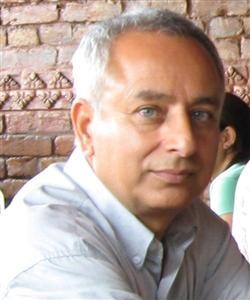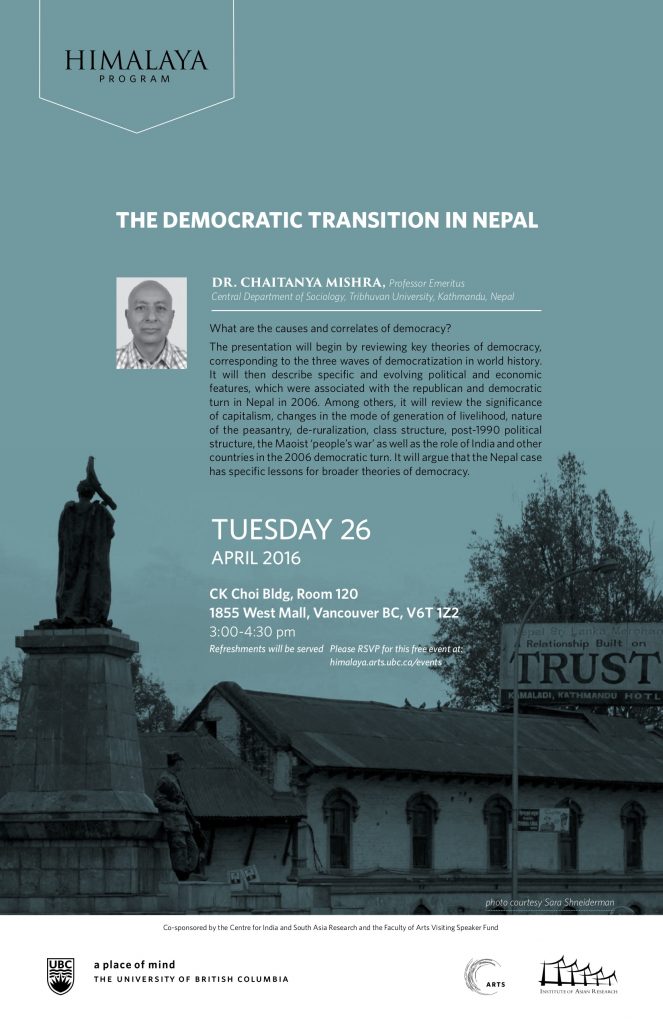What are the causes and correlates of democracy? The presentation will begin by reviewing key theories of democracy, corresponding to the three waves of democratization in world history. It will then describe specific and evolving political and economic features which were associated with the republican and democratic turn in Nepal in 2006. Among others, it will review the significance of capitalism, changes in the mode of generation of livelihood, nature of the peasantry, de-ruralization, class structure, post-1990 political structure, the Maoist ‘people’s war’ as well as the role of India and other countries in the 2006 democratic turn. It will argue that the Nepal case has specific lessons for broader theories of democracy.
 About the Speaker:
About the Speaker:
Dr. Chaitanya Mishra, Professor Emeritus, Central Department of Sociology, Tribhuvan University, Kathmandu, Nepal
Co-sponsored by the Centre for India and South Asia Research and the Faculty of Arts Visiting Speaker Fund
